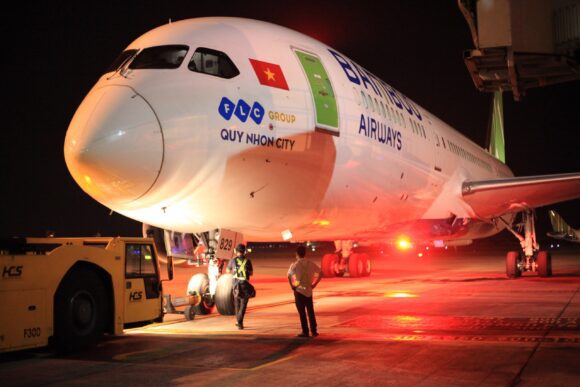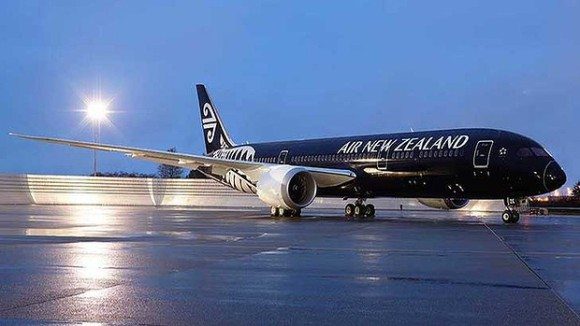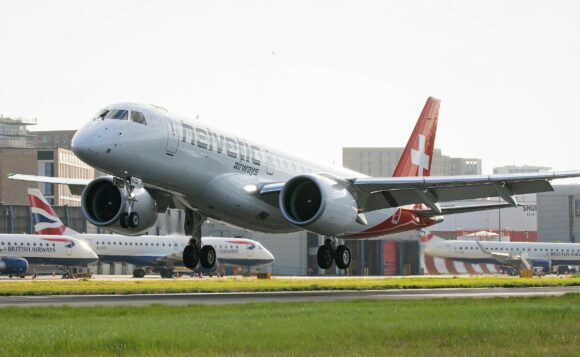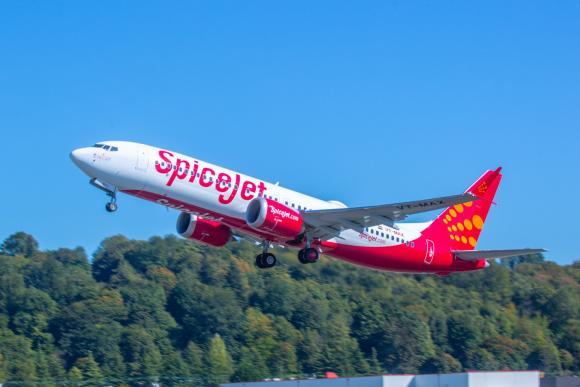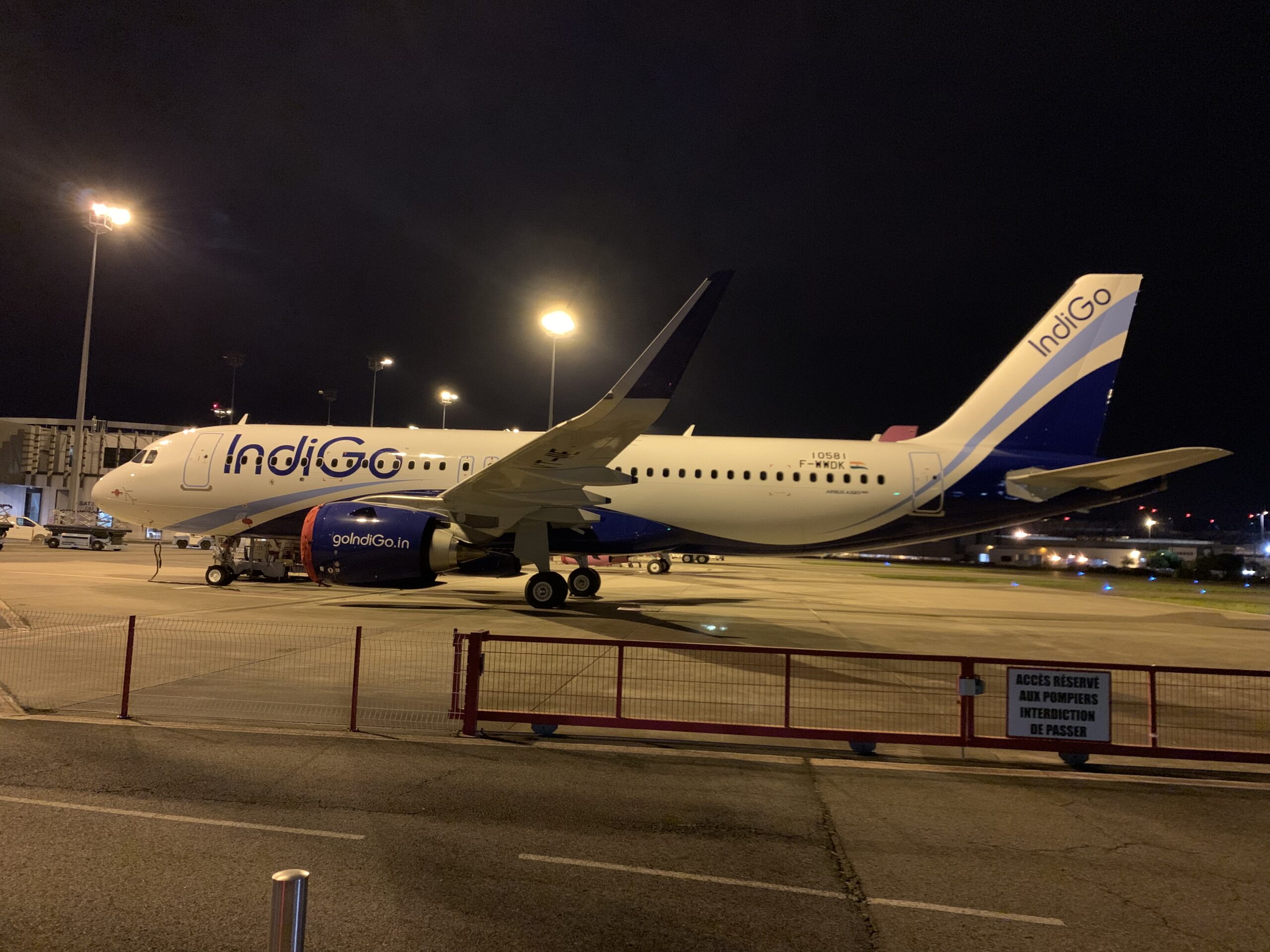
IMG 9256 scaled
To bring you more aviation news, Airinsight introduces News in Brief. During September, we compile a rolling story by date with news that is sometimes too small for a deep analysis but still interesting enough not to be missed.
28 – American Airlines has announced a codeshare agreement with Indian low-cost airline IndiGo. The agreement, which is subject to regulatory approval, will place American’s AA-code on 29 domestic services within India. American recently announced plans to start services between New York and Delhi on October 31 and between Seattle and Bangalore from January 4. The partnership should open up India to more US travelers who plan to visit India for either business or leisure.
28 – easyjet has received 93 percent valid acceptances to its latest rights issue, it announced today. The 31 for 47 rights issue closed on Monday with a price of £ 4.10. The rights issue was announced on September 9. The UK low-cost airline planned to raise £ 1.2 billion in fresh capital to strengthen its balance sheet and speed up its Covid recovery plan. CEO Johan Lundgren is happy with the outcome and the interest from investors in his airline.
easyjet said last week that it base more aircraft in 2022 in Spain and Portugal. Its base in Malaga will get two extra aircraft to bring the total to five, Palma de Mallorca will see two more to make seven in total, and Faro will have one Airbus stationed there from next May.
27 – Rolls-Royce has signed a definitive agreement to sell its 100-percent subsidiary ITP Aero to a Spanish and Basque consortium that is led by Bain Capital and includes SAPA and JB Capital. The consortium pays £ 1.7 billion for ITP, which produces detailed parts for various Rolls-Royce commercial and military engine programs. Rolls has been contemplating divesting ITP for a number of years but was formalized as part of its disposal strategy in August 2020 as it sought to bolster its financial position. The sale of ITP is expected to be closed in the first half of 2022. The new owners intend to grow the products of ITP Aero and maintain jobs, establishing the company within Spain. They are open until June next year for other industrial partners to join. ITP Aero will remain a strategic supplier to Rolls-Royce for decades to come, said CEO Warren East.
22 – Vietnam’s Bamboo Airways has signed an order for General Electric GEnx engines to power ten Boeing 787-9s it has on order, with options on engines for twenty more Dreamliners. The deal is valued at $2.0 billion at list prices. The airline is already a GEnx-operator since starting operations in 2019. two years after it was founded.
On September 24, Bamboo operated its first service into the US to San Francisco. It also signed agreements to operate in Los Angeles.
20 – Cathay Pacific has revised downwards its projected capacity for the coming months until January. Based on the August level of 13 percent, the carrier expects capacity to remain unchanged at this level for the final quarter instead of recovering to the 30 percent it had hoped for. Cathay carried 135.353 passengers in August, up 278.4 percent over August last year but 95.3 percent down on 2019 levels. Traffic was dominated by students, in particular between China and the US. Cargo was up by 21.7 percent over August 2020 to 124.3 tons, which surpassed expectations in what usually is a quiet month. The airline is expecting a strong peak season in its cargo business. The monthly cash burn should be around HK$ 1.0 billion.
16 – Air New Zealand and Airbus has signed a Memorandum of Understanding to cooperate on a joint research project on hydrogen aircraft in New Zealand. The airline will evaluate how a hydrogen airliner, which Airbus is studying for a year now, will operate on its network, operations, and infrastructure. Airbus will provide performance requirements and ground operations characteristics to ANZ. It’s not clear when the MoU will be confirmed and how long the research project will take. Airbus has had a similar agreement on hybrid-electric flying with SAS since 2019.
The joint project will help Air New Zealand decide on its future fleet planning as it works towards getting zero emissions by 2050. On short and medium-haul routes, (hybrid)electric aircraft are an option but also hydrogen. “At this stage, both hydrogen and battery electric aircraft are still on the table as potential options for our shorter domestic flights, along with Sustainable Aviation Fuel (SAF) for long haul operations. This research will help to inform future decision making as we work to decarbonize the airline”, says CEO Greg Foran. It is expected that Airbus will offer further details during its Airbus Summit on September 21-22 in Toulouse.
09 – US airlines have revised their financial projections for the current third quarter following rising Covid-cases in the country. JetBlue said that following “some softness in bookings and an increase in customer cancelations”, it expects to end the quarter with an EBITDA of $75-125 million, down from the previous guidance of $75-175 million. Flown capacity will be one percent down compared to Q3 2019. Revenues will be about 6six to nine percent lower over 2019. JetBlue is seeing that bookings seem to remain soft in Q4 as well.
American Airlines expects Q3 revenues to be down by 24-28 percent compared to -20 percent in the previous guidance. The carrier adds: “Despite these changes, the Company continues to expect a sequential improvement in both revenue and pre-tax loss before special items from the second quarter 2021 and expects that its reported third-quarter financial results will be the best quarter as measured by revenue and pre-tax loss before special items since the pandemic began.”
Delta Airlines says it expects revenues to be at the lower end of its prior guidance of minus 30-35 percent, with capacity to remain unchanged at minus 28-30 percent. Southwest Airlines expects lower revenues in Q3 in the 18-20 percent margin and capacity at -2 percent compared to 2019. United Airlines reckons on revenues 33 percent lower compared to Q3 2019, with capacity at -28 percent compared to -26 percent in the previous guidance.
08 – Another US airline has announced updates on its fleet plans. Spirit Airlines has leased ten Airbus A321neo’s from Air Lease Corporation (ALC) for delivery from the lessor’s order book in 2023 and 2024. Five A320neo’s that are up for delivery this year and in 2022 will be purchased by Spirit but will become part of a sale and leaseback through ALC. In its fleet plan of July 28, the latest that is available on the website, Spirit says it would have 13 A321neo’s and 92 A320neo’s by the end of 2023.
02 – Swiss airline Helvetic Airways has become the first one to operate the Embraer E190-E2 into London City Airport. On May 11, the type was certified for the steep approach procedure that requires descent angles of 5.5 degrees into the dockyard airport’s 1.508-meter runway. Software onboard the E2 systems needs an upgrade and there is an extra ‘Steep Approach’ switch inside the cockpit. Embraer first brought the E190-E2 into London City Airport just prior to the 2018 Farnborough Airshow. Helvetic operated the flight from Zurich on behalf of SWISS. The first flight had media and airline management on board or 110 passengers in total. The Embraer E1 has operated into LCY for many years with a number of airlines, including British Airways CityLink, KLM, Lufthansa, and LOT Polish Airways.
02 – The Boeing MAX 8 and 9 have been cleared for a return to service in Malaysia. CAA Malaysia announced on September 2 that it has revoked the decision from March 13, 2019, to ground the aircraft, following the two fatal accidents in October 2018 and March 2019. The new directive is applicable to Malaysian and foreign operators.
A few days earlier, India’s DGAC also cleared the MAX. Indian low-cost airline SpiceJet expects to resume MAX operations around the end of September. It said on August 26 that it had reached a settlement with lessor Avolon. Currently, only one MAX is leased from Avolon, and the other twelve are in storage from other lessors. SpiceJet has 129 unfilled MAX orders.
With Malaysia and India now approving the type and Singapore following on September 6, this leaves only China and Russia that still ban the MAX from services. In August, Boeing flew a MAX 7 to Shanghai to demonstrate to the CAAC regulatory agency that the aircraft fulfills all technical requirements. The aircraft performed only one demonstration flight, before returning home again. Boeing is hopeful it gets Chinese approval before the end of this year.
02 – IATA has warned that free movement within Europe is being compromised by the failure of EU member states to harmonize Covid-19 entry regulations. The reopening of borders is confusing travelers and businesses and not delivering the expected benefits in terms of easier travel and economic recovery, the airline association said on September 2. While the European Commission and member states collectively have introduced the Digital Covid Certificate, IATA says that 30 percent is not accepting rapid testing. 19 Percent is not making an exemption for testing of children. Some 41 percent of EU countries are not accepting fully vaccinated travelers from the non-EU ‘white list’. The number of countries that accept digital proof of vaccination and still require paper documents is also diffuse.
“It’s essential that European states come together on COVID-19 travel procedures. The good work done by the Commission and the states to develop the DCC is being wasted by a mess of unharmonized regulations”, said Rafael Schvartzman, IATA’s Regional Vice President for Europe.
Views: 6

